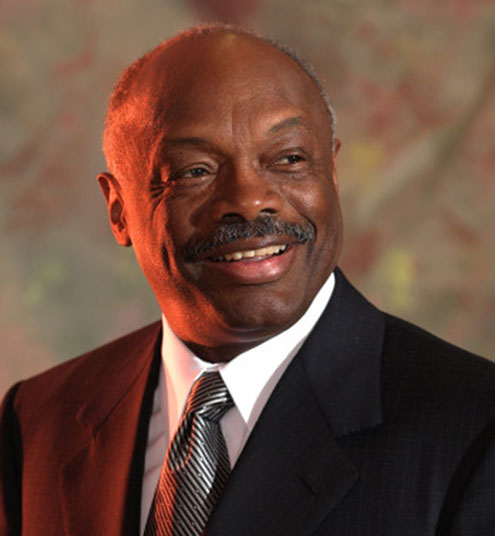
Photo by Gerry McIntyre
WILLIE L. BROWN JR.(B.A., ’55), two-term mayor of San Francisco and legendary speaker of the California State Assembly, talks about SF State’s past and his dreams for its future.
Your Willie L. Brown Jr. Fellowship Program at SF State has already benefitted 42 students. What inspired the program?
This scholarship opportunity will help generate a whole new collection of talented people who will want to do public service.
What would this success mean to the city?
If we could get 10, 12, 14 of [the State’s 120 legislators] to focus on the idea of replicating what we’re trying to do here, several hundred people could become conversant with the challenges, the benefits and the rewards of public service. That would be good for the whole state.
More than $1 million was just raised to support the program. What will that money do?
That money will be used primarily as scholarship stipends to the students selected and put in place at all the various units of city government. It’s better to get paid to continue their learning experience there rather than flipping burgers at Super Duper.
You’ve credited SF State with giving you the foundation you needed to launch your political career. How so?
By my sophomore year I was already heavily involved in politicking, getting students elected to student government. Also, I lived in housing that the school rented in Potrero Hill. I paid $14 a month rent, but the food program we had to organize ourselves. We had a treasurer, a secretary, someone responsible for buying the food. We ran our complex.
Have you heard of plans to make Holloway Avenue a Main Street-style retail space with high-density student housing?
I think it’s good. SF State has grown significantly. Its students richly deserve housing.
You were part of the first graduating class on SF State’s current campus. What was that like?
My fellow students and I were frankly just pleased to get on what was a college campus rather than just a downtown commercial property [SF State’s prior location at Waller and Buchanan streets]. We had a grassy area, a lounge and a cafeteria that was large enough so that we had a social gathering place. We had a bookstore and a new library.
You worked at the library as one of your student jobs.
One of the campus jobs that everybody loved was working in the library. You were at the checkout desk or you were returning books to the shelves.
Recently you toured SF State’s newly remodeled library, which has a high-tech book-retrieval system. How do you feel about being replaced by a robot?
As a matter of fact, I identify closely because of the speed with which I used to get my job done! Actually, I could not believe they had that system — not just there, but anywhere. And with the ability of the library to stay open almost 24 hours a day, and the access to research materials that I observed people using, it’s such an incredible improvement.
Next spring there will be a formal dedication of your archive in the library. What’s it like to see your political achievements all in one place?
I’m beginning to go back and look at the history and the records and introducing myself to Willie Brown. Some of those things — I don’t even remember doing them.
The archive will catalog an extraordinary career. Do the same opportunities exist today for, say, another talented young person arriving at SF State from a small town like your Mineola, Texas?
Oh, absolutely. Their opportunities today are even greater.